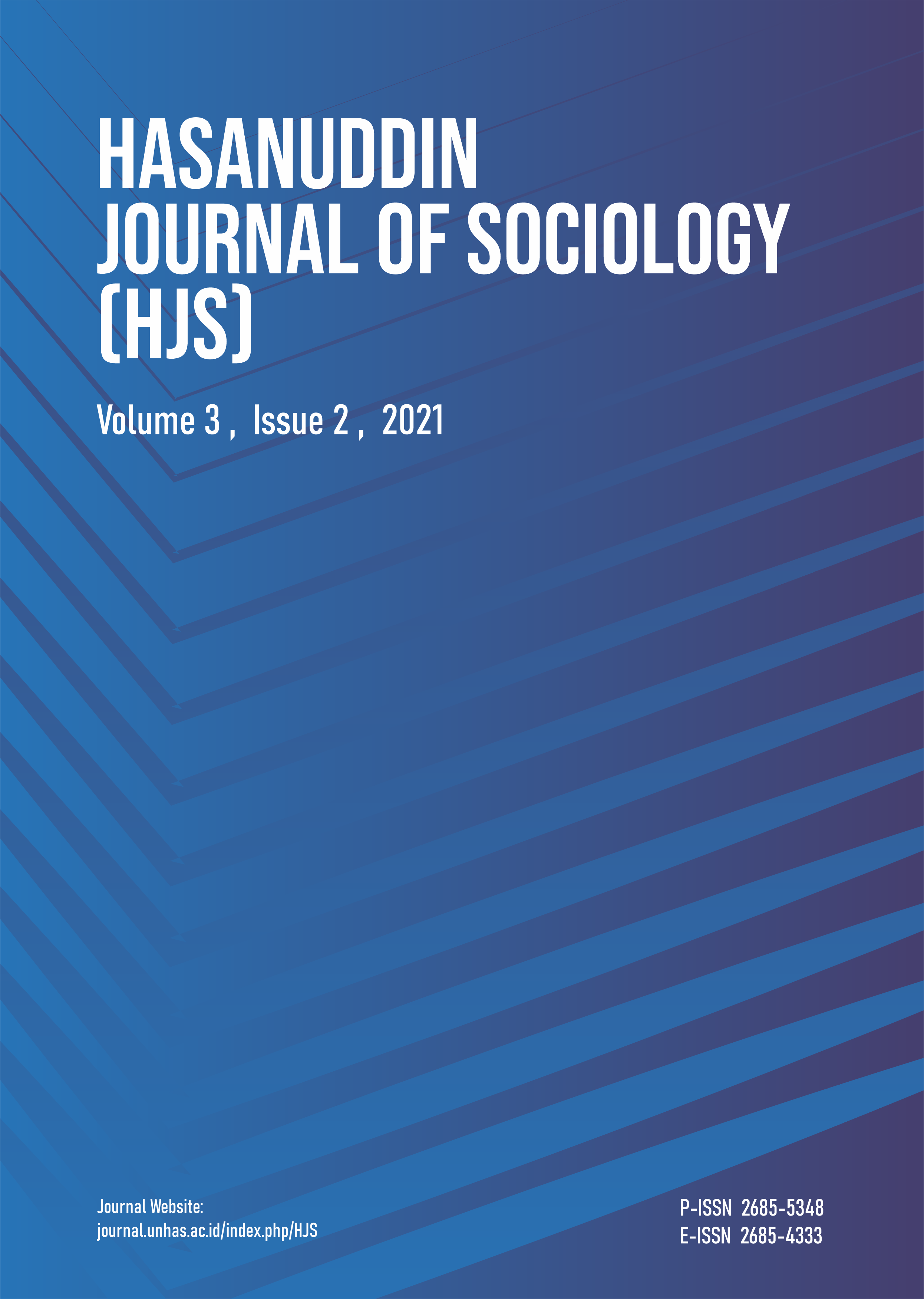Transformasi Pola Pengasuhan Anak Pada Keluarga Etnis Bugis di Perkotaan (Studi Kasus Kelurahan Tamalanrea Indah Kota Makassar)
DOI:
https://doi.org/10.31947/hjs.v3i1.18602Abstract
This article aims to identify and analyze (1) parenting patterns in Bugis culture in relation to the views of Bugis parents in child care. The results show that parenting patterns for children in Bugis ethnic families, especially in Makassar City, have now undergone changes or shifts and even value adjustments to modern values both in form and nature. Some of the factors that caused this to happen were (1) factors of change and differences in times from the previous generation, (2) psychological factors of children, and (3) factors of binding legislation. The implementation of Bugis ethnic values such as Siri' and Mappatabe' is still being applied by the Bugis family but the values seem to have adjusted to the new values that were born by the modernization of technology, information, and communication. The parenting pattern of the first-generation Bugis ethnic family tends to be authoritarian, while the second generation tends to lead to a democratic parenting pattern. Keyword: parents, parenting, transformation.Downloads
Download data is not yet available.









